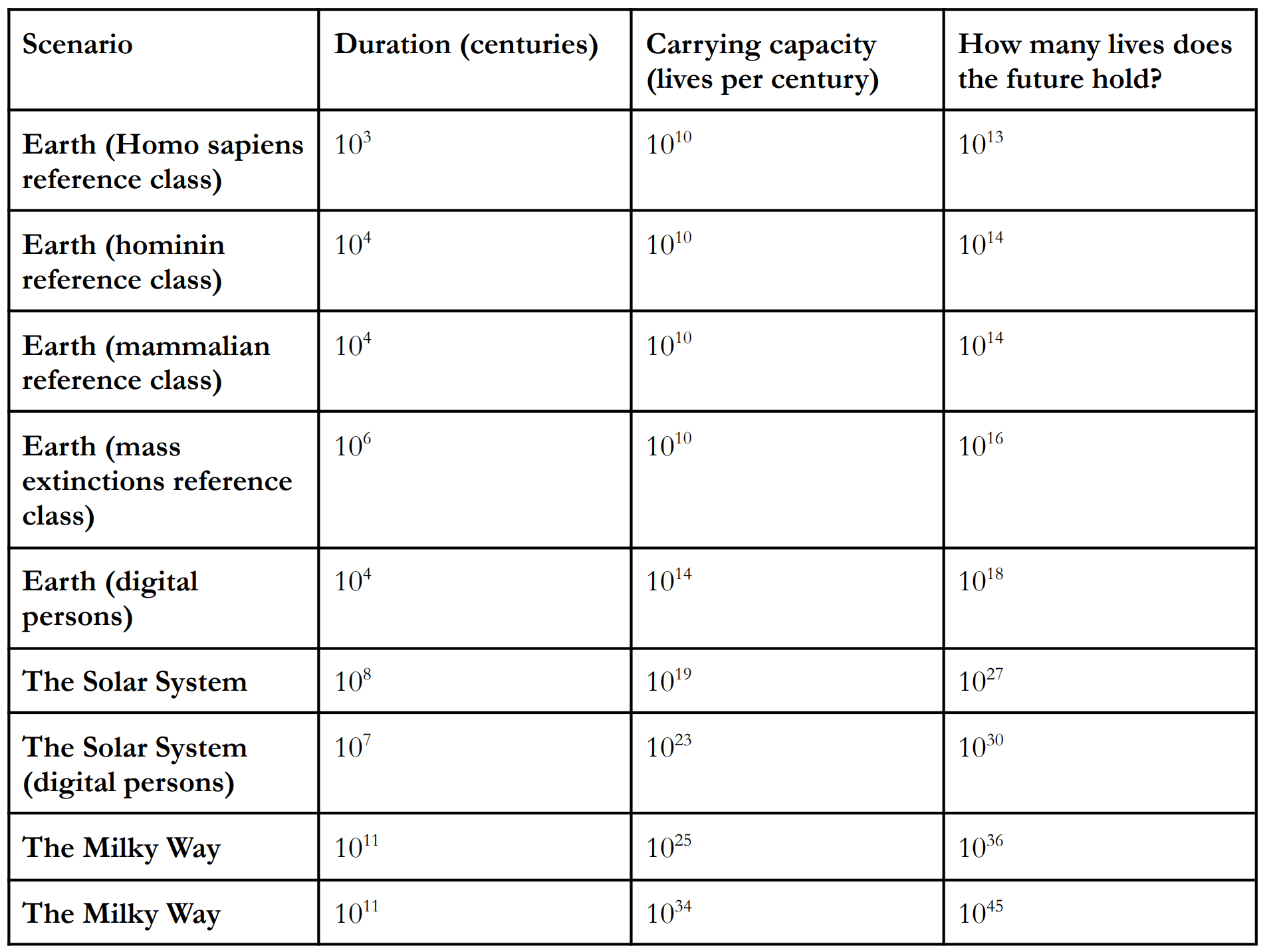Note: as a result of the discussions I’ve had here in the comment section and elsewhere, my views have changed since I made this post. I no longer think permanently stalling technological progress is a realistic option, and am questioning whether a long-term AI development pause is even feasible. -(-H.F., Jan 15., 2024)
———
By this, I mean a world in which:
- Humans remain the dominant intelligent, technological species on Earth's landmasses for a long period of time (> ~10,000 years).
- AGI is never developed, or it gets banned / limited in the interests of human safety. AI never has much social or economic impact.
- Narrow AI never advances much beyond where it is today, or it becomes banned / limited in the interests of human safety.
- Mind uploading is impossible or never pursued.
- Life extension (beyond modest gains due to modern medicine) isn't possible, or is never pursued.
- Any form of transhumanist initiatives are impossible or never pursued.
- No contact is made with alien species or extraterrestrial AIs, no greater-than-human intelligences are discovered anywhere in the universe.
- Every human grows, peaks, ages, and passes away within ~100 years of their birth, and this continues for the remainder of the human species' lifetime.
Most other EAs I've talked to have indicated that this sort of future is suboptimal, undesirable, or best avoided, and this seems to be a widespread position among AI researchers as well (1). Even MIRI founder Eliezer Yudkowsky, perhaps the most well-known AI abolitionist outside of EA circles, wouldn't go as far as to say that AGI should never be developed, and that transhumanist projects should never be pursued (2). And he isn't alone -- there are many, many researchers both within and outside of the EA community with similar views on P(extinction) and P(societal collapse), and they still wouldn't accept the idea that the human condition should never be altered via technological means.
My question is why can't we just accept the human condition as it existed before smarter-than-human AI (and fundamental alterations to our nature) were considered to be more than pure fantasy? After all, the best way to stop a hostile, unaligned AI is to never invent it in the first place. The best way to avoid the destruction of future value by smarter-than-human artificial intelligence is to avoid obsession with present utility and convenience.
So why aren't more EA-aligned organizations and initiatives (other than MIRI) presenting global, strictly enforced bans on advanced AI training as a solution to AI-generated x-risk? Why isn't there more discussion of acceptance (of the traditional human condition) as an antidote to the risks of AGI, rather than relying solely on alignment research and safety practices to provide a safe path forward for AI (I'm not convinced such a path exists)?
Let's leave out the considerations of whether AI development can be practically stopped at this stage, and just focus more on the philosophical issues here.
References:
- Katya_Grace (EA Forum Poster) (2024, January 5). Survey of 2,778 AI authors: six parts in pictures.
- Yudkowsky, E. S. (2023, March 29). The only way to deal with the threat from AI? Shut it down. Time. https://time.com/6266923/ai-eliezer-yudkowsky-open-letter-not-enough/



I will admit that my comments on indefinite delay were intended to be the core of my question, with “forever” being a way to get people to think “if we never figure it out, is it so bad?”
As for the suffering costs of indefinite delay, I think most of those are pretty well-known (more deaths due to diseases, more animal suffering/death due to lack of cellular agriculture [but we don’t need AGI for this], higher x-risk from pandemics and climate effects), with the odd black swan possibility still out there. I think it’s important to consider the counterfactual conditions as well—that is, “other than extinction, what are the suffering costs of NOT indefinite delay?”
More esoteric risks aside (Basilisks, virtual hells, etc.), disinformation, loss of social connection, loss of trust in human institutions, economic crisis and mass unemployment, and a permanent curtailing of human potential by AI (making us permanently a “pet” species, totally dependent on the AGI) seem like the most pressing short-term (</= 0.01-100 years) s-risks of not-indefinite-delay. The amount of energy AI consumes can also exacerbate fossil fuel exhaustion and climate change, which carry strong s-risks (and distant x-risk) as well; this is at least a strong argument for delaying AI until we figure out fusion, high-yield solar, etc.
As for that third question, it was left out because I felt it would make the discussion too broad (the theory plus this practicality seemed like too much). “Can we actually enforce indefinite delay?” and “what if indefinite delay doesn’t reduce our x-risk?” are questions that keep me up at night, and I’ll admit that I don’t know much about the details of arguments centered on compute overhang (I need to do more reading on that specifically). I am convinced that the current path will likely lead to extinction, based on existing works on sudden capabilities increase with AGI combined with its fundamental non-connection with objective or human values.
I’ll end with this—if indefinite delay turns out to increase our x-risk (or if we just can’t do it for sociopolitical reasons), then I truly envy those who were born before 1920—they never had to see the storm that’s coming.